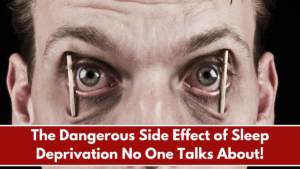The Hidden Killer in Your Diet
Most people believe they eat relatively healthy—choosing foods labeled as “low-fat,” “natural,” or even “organic.” But what if one common ingredient lurking in your meals was silently destroying your body from the inside out?
Doctors and scientists have been warning about this hidden killer for decades, yet most people remain unaware of its devastating effects.
What’s worse? You’re probably addicted to it without even realizing it.
This ingredient is found in:
- Soft drinks and fruit juices
- Processed cereals and granola bars
- Yogurts and salad dressings
- “Low-fat” and “sugar-free” foods
What is it? Refined sugar.
Despite its sweet appeal, sugar is a slow poison, linked to obesity, diabetes, heart disease, liver damage, cancer, inflammation, and early death.
This article will expose the shocking truth about sugar:
- How the sugar industry manipulated science to make sugar seem harmless
- The biological and psychological effects of sugar on your body and brain
- How sugar is as addictive as cocaine and how it hijacks your brain
- Why sugar accelerates aging and damages organs over time
- A complete, step-by-step guide to detoxing from sugar addiction
By the end, you’ll know the truth—and have the tools to reclaim your health before it’s too late.
The Shocking History of Sugar: How It Became a Global Addiction
Sugar Was Once a Rare Luxury
For thousands of years, sugar was a rare delicacy. Most people never consumed refined sugar—instead, they got their sweetness from:
- Fruits (natural sugars with fiber and antioxidants)
- Honey (used sparingly for special occasions)
- Dairy (naturally containing lactose, a mild sugar)
But everything changed 500 years ago when European powers colonized tropical regions and turned sugar into a massive industry.
- 1500s – Sugar plantations were established in the Caribbean, Brazil, and the southern U.S.
- 1600s-1700s – The slave trade exploded to support sugar production.
- 1800s – Sugar became cheaper, and average people started consuming it.
- 1900s – The food industry began adding sugar to almost everything.
- 1950s-1970s – The sugar industry manipulated scientific studies to blame fat for heart disease.
- 2000s-Present – Sugar is now in over 80% of processed foods, leading to a global health crisis.
The Sugar Industry’s Biggest Lie: “Fat is the Problem”
In the 1960s, a group of scientists paid by the sugar industry falsely linked heart disease to saturated fat—instead of sugar.
- Sugar lobbyists funded fake studies to make sugar seem safe.
- They suppressed research showing sugar’s link to heart disease.
- Governments followed their recommendations, leading to a low-fat diet movement.
As a result, the food industry removed fat from foods and replaced it with sugar—which caused diabetes and obesity rates to skyrocket.
How Sugar Destroys Your Body
1. Sugar Spikes Blood Sugar and Leads to Diabetes
When you eat sugar, it enters your bloodstream instantly, causing a sudden spike in blood sugar levels. Your pancreas releases insulin, a hormone that moves sugar into your cells.
The problem? When you consume sugar too often, your body stops responding to insulin properly. This leads to:
- Insulin resistance – Your cells stop absorbing sugar properly.
- Prediabetes – Blood sugar stays dangerously high.
- Type 2 Diabetes – Your body loses control of blood sugar entirely.
A 2023 study in JAMA found that people who consume more than 15% of their daily calories from sugar are 2.3 times more likely to develop diabetes.
2. Sugar Overloads the Liver and Causes Fatty Liver Disease
Your liver processes sugar—but when you eat too much, your liver turns the excess into fat. Over time, this leads to:
- Non-Alcoholic Fatty Liver Disease (NAFLD) – Fat builds up in the liver, causing inflammation.
- Liver scarring and failure – The liver becomes damaged beyond repair.
- Increased risk of liver cancer.
NAFLD now affects 1 in 3 adults, and many don’t even realize they have it.
3. Sugar Increases the Risk of Heart Disease
Heart disease is the #1 killer worldwide—and sugar is one of the main culprits.
High sugar intake leads to:
- Increased LDL (“bad”) cholesterol
- Decreased HDL (“good”) cholesterol
- Chronic inflammation
- High blood pressure
A Harvard study found that people who consume 25% of their daily calories from sugar are twice as likely to die from heart disease.
4. Sugar Weakens the Immune System
Eating just 100 grams of sugar (about two sodas) can reduce immune function for up to five hours.
- White blood cells become less effective at fighting infections.
- Inflammation increases, making you more prone to chronic illnesses.
- The gut microbiome is disrupted, further weakening immunity.
5. Sugar Causes Premature Aging
Excess sugar damages collagen and elastin, leading to:
- Wrinkles and sagging skin
- Increased acne and breakouts
- Faster aging at the cellular level
A 2019 dermatology study found that high sugar diets accelerate visible signs of aging by up to 10 years.
The Science Behind Sugar Addiction
Sugar Affects the Brain Like Cocaine
Studies show that sugar stimulates the same brain pathways as cocaine and heroin. It releases dopamine, the “feel-good” neurotransmitter, creating:
- Cravings and withdrawal symptoms
- Overeating and bingeing
- Mood swings and irritability
A 2022 study in The Journal of Neuroscience confirmed that sugar addiction rewires the brain, making quitting as difficult as breaking drug addiction.
Food Companies Intentionally Keep You Addicted
- Hiding sugar under different names (e.g., fructose, maltodextrin, cane syrup)
- Adding artificial sweeteners that trick the brain into craving more sugar
- Engineering foods to maximize cravings (e.g., fast food, breakfast cereals)
The goal? Keep consumers addicted for life.
How to Detox from Sugar Addiction
Step 1: Identify Hidden Sugars
Food companies hide sugar under more than 50 names, including:
- High-fructose corn syrup
- Evaporated cane juice
- Maltodextrin
- Rice syrup
Step 2: Replace Processed Foods with Whole Foods
- Eat whole fruits instead of fruit juices
- Choose lean proteins, nuts, and healthy fats
- Replace processed snacks with fresh vegetables
Step 3: Stay Hydrated and Get Enough Sleep
- Dehydration increases sugar cravings
- Lack of sleep disrupts hunger hormones
Step 4: Break the Addiction in 14 Days
The first two weeks are the hardest—but once your body resets, sugar cravings disappear.
- Avoid all refined sugar and artificial sweeteners
- Eat fiber-rich foods to stabilize blood sugar
- Drink plenty of water and herbal teas
Final Warning: The Choice Is Yours
Sugar is a slow poison, and the food industry wants to keep you addicted. But you have the power to break free.
Are you ready to take back control of your health?
FAQ’s:
1. How much sugar is too much?
The American Heart Association recommends:
- Men: No more than 36 grams (9 teaspoons) per day
- Women: No more than 25 grams (6 teaspoons) per day
- Children: No more than 24 grams (6 teaspoons) per day
However, most people consume 3–5 times this amount, leading to serious health risks.
2. Why is sugar so addictive?
Sugar triggers dopamine release in the brain, similar to addictive drugs like cocaine and heroin. This creates a cycle of cravings, consumption, and withdrawal, making it difficult to quit.
3. What are the worst hidden sources of sugar?
Even foods labeled as “healthy” often contain hidden sugar. Common culprits include:
- Flavored yogurts and granola bars
- Fruit juices and smoothies
- Salad dressings and condiments (ketchup, BBQ sauce)
- “Low-fat” or “diet” products
- Bread, pasta sauces, and packaged foods
4. What happens when I quit sugar?
You may experience withdrawal symptoms such as:
- Headaches
- Fatigue and irritability
- Mood swings and cravings
However, after 7–14 days, most people feel increased energy, mental clarity, and reduced cravings.
5. Does sugar really cause diabetes?
Yes. Excess sugar consumption leads to insulin resistance, which is the primary cause of Type 2 Diabetes. Studies show that people who consume sugary drinks daily are significantly more likely to develop diabetes.
6. Can sugar affect mental health?
Absolutely. Sugar spikes and crashes can lead to:
- Increased anxiety and depression
- Poor focus and brain fog
- Higher risk of Alzheimer’s disease (sometimes called “Type 3 Diabetes”)
7. What are the best alternatives to refined sugar?
Instead of refined sugar, try:
- Natural sweeteners: Raw honey, pure maple syrup, or coconut sugar (in moderation)
- Sugar alcohols: Erythritol or xylitol (low-calorie, safer options)
- Zero-calorie sweeteners: Stevia or monk fruit (natural and do not spike blood sugar)
8. How does sugar cause weight gain?
Sugar triggers insulin spikes, which leads to fat storage, increased hunger, and cravings. Excess sugar is also stored as belly fat, increasing the risk of metabolic diseases.
9. Does artificial sweetener help in quitting sugar?
Not necessarily. Some artificial sweeteners (like aspartame and sucralose) still trigger cravings, tricking the brain into wanting more sweets. Instead, focus on reducing your overall sweet intake rather than just switching to sugar substitutes.
10. Can I eat sugar in moderation?
Yes, but only from natural sources like fruits, which contain fiber and nutrients to balance sugar absorption. Avoid refined and added sugars, as they contribute to chronic health problems even in small amounts.



